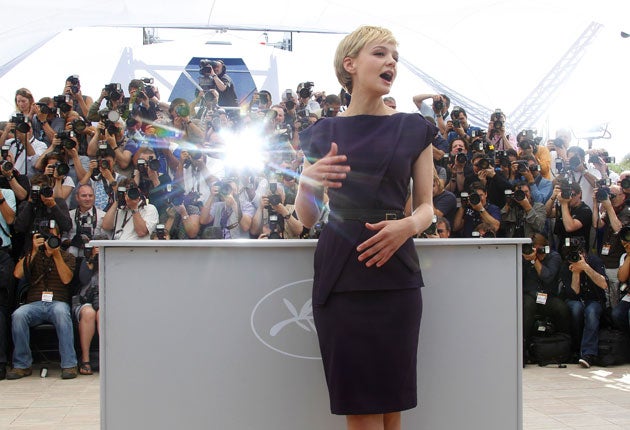First Night: Wall Street: Money Never Sleeps, Cannes Film Festival
Gekko not quite on the money

"People are a mixed bag," Gordon Gekko (Michael Douglas) tells us in a philosophical aside late on in Wall Street: Money Never Sleeps. The same observation could be made of Oliver Stone's own movies. Stone's return to Wall Street is riveting, bombastic and downright maudlin by turns.
Stone is unique among contemporary US directors in his ability to fashion broad-brush, populist mainstream movies out of social and political events. You marvel here at his ability to make dialogue about credit default swaps sound dramatic. When the rival bankers huddle together in the face of financial meltdown, they're filmed in the same way as Mafia bosses in gangster movies.
The early scenes are tremendous. We see Gekko released from prison, looking unkempt and a long way from his 1980s glory. We're then plunged into the 2008 sub-prime maelstrom as one bank collapses. The bank's boss, Lewis Zabel (played with King Lear-like gravitas by Frank Langella), is mentor to ambitious young banker Jacob Moore (Shia LaBeouf), who, in turn, is boyfriend to Gekko's estranged daughter, Winnie (Carey Mulligan.)
Stone throws in sweeping sequences contrasting the imposing majesty of the Wall Street buildings with the blurry, computer-driven chaos in the trading rooms. He cranks up the tension as the bankers confer among themselves as to whether they'll deign to bail out Zabel, whose bank is teetering on the brink.
The film captures effectively the machismo and arrogance of the young traders, seemingly oblivious to the fact that their world is falling in around them. The plaintive David Byrne music adds to the sense of foreboding.
Douglas won an Oscar first time out as Gekko and he delivers another swaggering, scene-stealing performance here. However, his presence is unsettling and ultimately problematic for the film. The screenwriters are desperate to provide him with dialogue to match his "greed is good" motto. "You are all pretty much fucked... you are the 'ninja' generation," he tells an audience during a rousing speech to plug his new book. "Ninja" means: no income, no jobs, no assets. It's an increasing strain, though, to keep those quotable one-liners coming. Gekko risks becoming a pantomime figure.
There is too much baggage here. The film-makers' attempts at cross-referencing the 1987 Wall Street are often clunky. At one fundraising dinner, we get an excruciating cameo from Charlie Sheen, the original film's star. The plotting is cumbersome. This isn't just a film about the meltdown of Western capitalism. It is also an old-fashioned family melodrama about a daughter estranged from her father and about a prospective son-in-law who wants to bring the family together.
The villain of the piece is the bullying patriarch Bretton James, played by Josh Brolin. Brolin brings a brooding menace and arrogance to his role as the banker whose answer, when asked what his price is, is "more".
Carey Mulligan has a relatively thankless role as Winnie. She can't bear her father because of his part in her brother's suicide. Given her disdain for bankers, it is startling that she is so drawn to Jacob, who embodies many of her father's lesser qualities.

Watch Apple TV+ free for 7 days
New subscribers only. £8.99/mo. after free trial. Plan auto-renews until cancelled

Watch Apple TV+ free for 7 days
New subscribers only. £8.99/mo. after free trial. Plan auto-renews until cancelled
The family subplot – and Jacob's quest for revenge on behalf of his surrogate father, Zabel – distract from what had been building into a rousing disaster movie: an Apocalypse Now in the banking sector.
The paradox this sequel can never quite escape is that for all Stone's sideswipes at the iniquities of the banking system, characters such as Gekko and James are portrayed as masters of the universe. They may be malign but they are still charismatic and powerful figures who lead glamorous lives and look like objects of envy as much as of disdain.
Subscribe to Independent Premium to bookmark this article
Want to bookmark your favourite articles and stories to read or reference later? Start your Independent Premium subscription today.

Join our commenting forum
Join thought-provoking conversations, follow other Independent readers and see their replies